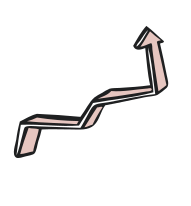







The Motherhood Tax
What is the Motherhood Tax?
You’ve worked hard, gained experience, and climbed the ‘career ladder’. Then you decide to start a family… but did you know that decision could cost you nearly half of your salary?
In the UK, mothers face a 44% drop in earnings after their first child.
In New Zealand, the drop is 12.5%. And if you’re in Germany, it’s a shocking 61% reduction in earnings.
*PWC.co.uk Women in Work 2023 – Closing the Gender Pay Gap for good: A focus on the motherhood penalty
80% of the Gender Pay Gap
We hear a lot about the gender pay gap, but here’s something surprising—80% of that gap is due to the motherhood penalty. Yes, you read that right. The big difference in pay between men and women often boils down to one thing: giving birth.
But while women’s wages drop, men’s often remain stable—or even increase! In the UK, fathers actually see a 6% bump in their salary after having children.

*Vox.com Gender Wage Gap Childcare Penalty
Why Does This Happen?
Why does starting a family hit women so hard financially? It’s not because they stop being good at their jobs. It’s because the system isn’t built to support parents—especially mothers.
Women who take time off for maternity leave often return to under-employment where their skills are not utilised, missed opportunities, or reduced hours. This slows down career progression, while men’s careers tend to stay on track or even accelerate.
Let’s look at the last 10 years to see the shifts in statistics…
Women Succeeding in the Workplace: UK vs. New Zealand – Then and Now
Now:

Then:

*Sources:
Office for National Statistics (ONS) (UK) and Stats NZ.
ONS Labour Market Statistics (UK) and Stats NZ Household Labour Force Survey.
CIPD (UK) and Employment New Zealand surveys.
How Do We Fix This?
This isn’t just a tax—it’s a penalty for balancing career and family life. But it doesn’t have to be this way. There are clear solutions that could help level the playing field for working mothers:
Proper Maternity Pay and Policies
Companies need to ensure that women are paid fairly during maternity leave and are supported when they return to work. Maternity leave policies should protect not just income, but also the ability to continue advancing in a career.
Encouraging Dads to Take Paternity Leave
The more fathers take paternity leave, the more we normalise the idea that parenting responsibilities are shared. When both parents take time off, it becomes less of a ‘motherhood penalty’ and more of a ‘parenthood balance.’
Flexible Working Conditions
Flexible hours and remote working options should be the norm, not the exception. This allows parents to balance family and work commitments without feeling penalised for it.
Childcare Support
Childcare is one of the biggest hurdles working parents face. Companies that offer on-site childcare or cover a portion of childcare costs will see not only increased retention but also higher productivity. Patagonia, for instance, found that providing on-site childcare paid for itself through higher retention rates and boosted employee satisfaction.
................................................................
The Motherhood Tax is more than just a financial penalty—it’s a reflection of how society values (or doesn’t value) the work of parenting. If we want to create a fairer world for women and families, we need to start by recognising this tax for what it is: a penalty for daring to balance a career with motherhood.
But it doesn’t have to stay this way. We can push for a future where no one is penalised for being a parent. A future where women don’t have to choose between a successful career and family life. And it starts with us demanding better.


